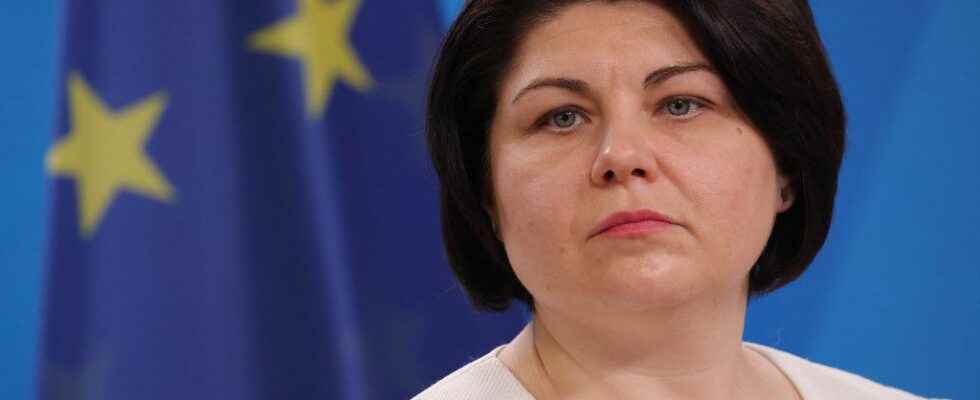Moldovan Prime Minister Natalia Gavrilita presented her resignation this Friday, February 10, after a year and a half in power in this former Soviet republic which is bearing the brunt of the consequences of the war in neighboring Ukraine. The 45-year-old pro-European official told the press “a lack of support and confidence in the country”.
This resignation comes as Moldova reported on Friday the overflight of its territory by a Russian cruise missile, “an unacceptable violation” of airspace according to Chisinau. The day before, the Moldovan intelligence services had also confirmed information from kyiv that Moscow was planning to overthrow the pro-European government in Chisinau.
President Maia Sandu, also pro-European, thanked her now ex-Prime Minister for “her sacrifice and her enormous efforts to govern through so many crises”. Barely a few hours after these announcements, Dorin Recean, also pro-European, was appointed head of government. Former Minister of the Interior and entrepreneur in fintech, Dorin Recean, 48, has held since February 2022 the role of adviser to the Head of State for defense issues. He must now receive the confidence of Parliament, a vote which should go off without a hitch: the pro-European party has the support of 63 MPs out of 101 seats.
A country heavily dependent on Russia
The task of the new Prime Minister will not be easy. After announcing that it “was time for [elle] to leave”, Natalia Gavrilita added that no one expected her government, elected in the summer of 2021, “to have to manage so many crises caused by Russian aggression in Ukraine”.
During her short mandate, the latter had to face many challenges, particularly in terms of energy. Extremely dependent on Russia, the small country of 2.6 million inhabitants nestled between Ukraine and Romania suffered a drastic reduction in deliveries from the giant Gazprom after the Russian invasion.
It was also the victim of massive power outages following Russian strikes on Ukrainian energy sites. Moldova, which has to deal with Russian soldiers on its soil, in the separatist region of Transdniestria, has also pointed to “attempts to destabilize” Russia. Maia Sandu accused Moscow of being behind the trafficking of arms, goods, human trafficking or of financing anti-government demonstrations: in short, of waging a “hybrid war”.
